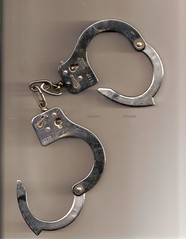 The Memphis’ juvenile jail has been found decidedly wanting in a recent federal investigation. According to it’s findings, there have been problems at the Shelby County Juvenile Court for years, mainly concerned with overly harsh discipline, inadequate protection of the incarcerated, and a strong dose of racism in the way that the inmates are treated.
The Memphis’ juvenile jail has been found decidedly wanting in a recent federal investigation. According to it’s findings, there have been problems at the Shelby County Juvenile Court for years, mainly concerned with overly harsh discipline, inadequate protection of the incarcerated, and a strong dose of racism in the way that the inmates are treated.
Thomas Perez, head of the DOJ’s Civil Rights Division in Washington, reported Thursday that both his attorneys and outside consultants found “systemic civil-rights violations as well as patterns of discrimination against black youths, who are more likely to be detained, to receive tougher punishments and to end up in the adult system.”
Beth Warren at The Commercial Appeal gives us a bit more detail on the DOJ findings:
Detention officers have used restraint chairs to strap down juveniles and pressure-point control tactics, such as bending a youth’s wrist backward to induce pain, according to a three-year investigation by the U.S. Department of Justice. Both, as practiced in Memphis, are unconstitutional, according to the report by the DOJ’s Civil Rights Division.
The report also found dangers in the physical layout of the jail, such as its two-level design with a balcony.
‘There is no systematic suicide-proofing of the building, no education to detention staff regarding necessary precautions and no plans to correct these risks,’ according to the report.
These issues are of grave concern, but even worse is the widespread racism endemic in the justice system. Unlike the situation inside the facility, the racist component begins on the streets. Just look at the arrest findings (via WREG TV, Memphis)
Black juveniles who were arrested in Memphis and surrounding Shelby County were twice as likely as whites to be detained in jail and twice as likely to be recommended for transfer to adult court, where a conviction generally brings harsher punishment, Perez said.
As is established in numerous reports over recent years, when you put juveniles into adult facilities the recidivism rate spikes. In other words, a much larger percentage of them are arrested again after release. The simple fact is that placing youth in facilities with adult offenders creates a training ground for criminals.
Perez has publicly stated that the goal is not to place blame, but to find a way to fix the problem. We will be keeping an eye on Shelby County and will let you know how well he does.
Image by Vector Portal, used under its Creative Commons license










